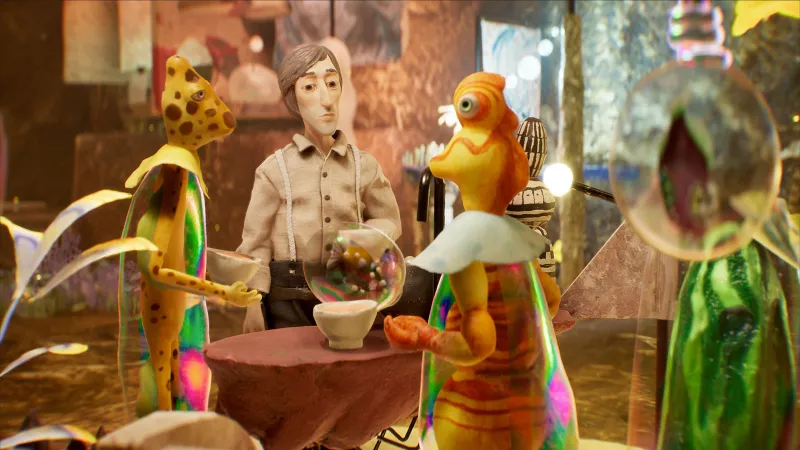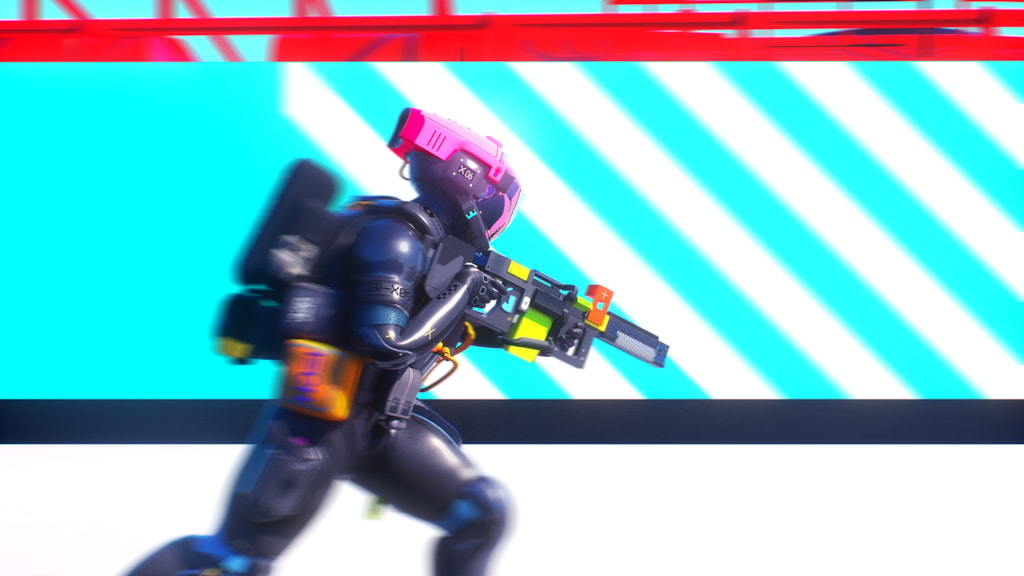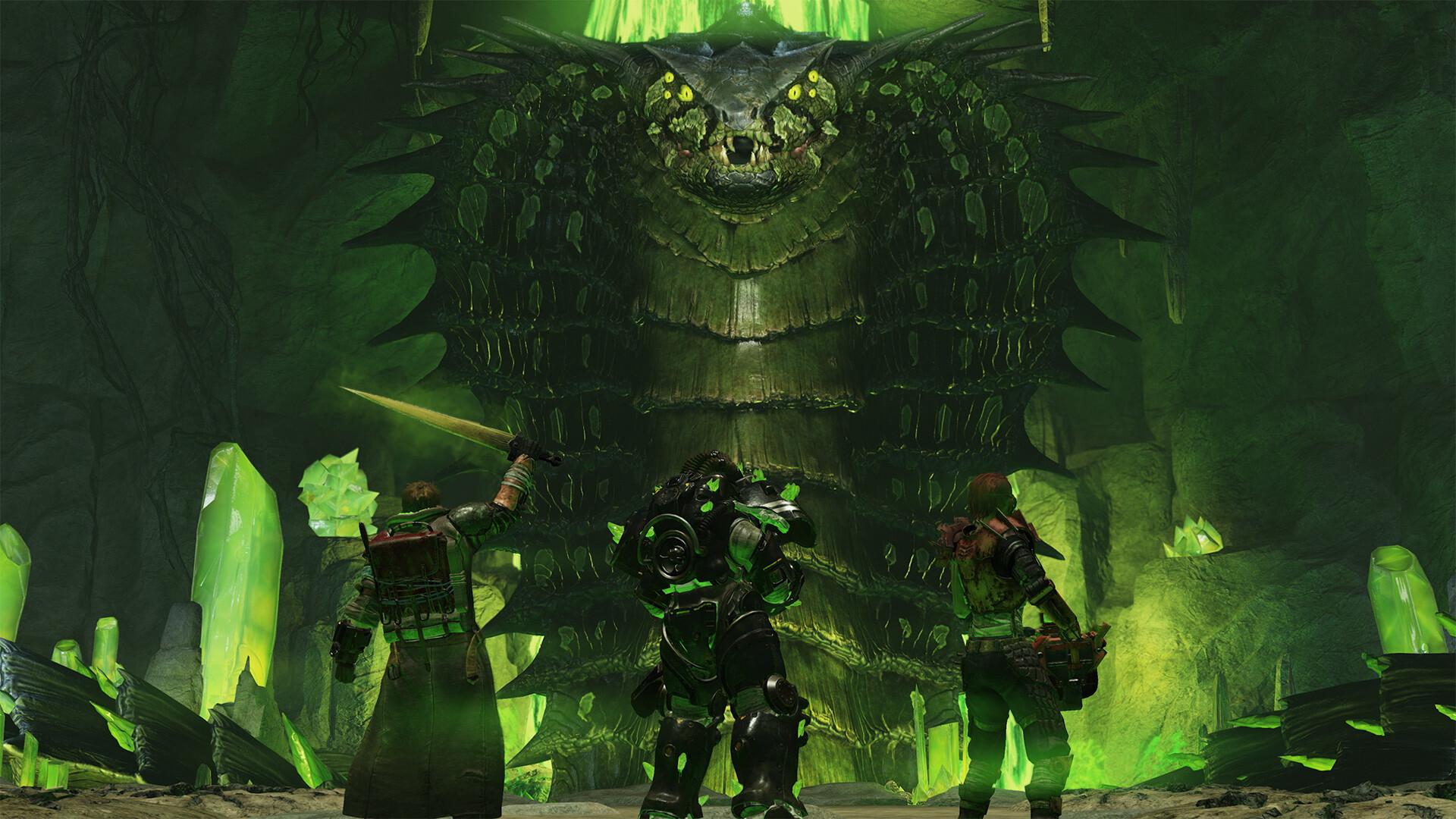
<p><img loading="lazy" src="https://www.gameinformer.com/sites/default/files/styles/body_default/public/2024/02/07/be705970/01_0.jpg" width="800" height="450" alt="" typeof="foaf:Image" class="image-style-body-default" /></p> Platform: PlayStation 5, Xbox Series X/S, PC Publisher: Slow Bros. Developer: Slow Bros. Release: 2024 <p>The first teaser trailer for Harold Halibut was released seven years ago and was only a minute and a half long, but it immediately grabbed my attention. The footage showed a stop-animated Harold (or what looked stop-animated) cleaning up graffiti in an underwater facility. The striking visuals inspired a thought I don’t often have – how did they do that? It was my first question for game director Ole Tillmann and art director Onat Hekimoglu when I recently spoke with them.</p> <iframe width="560" height="315" frameBorder="0" allow="autoplay" allowfullscreen="" frameborder="0" height="360" src="https://www.youtube.com/embed/Ua_qqaAQsBk" width="640"></iframe> <p>“We actually started with the idea of wanting to make a stop motion game,” Tillmann says while citing that the first steps he and his team took toward making the game were in 2011. Harold Halibut is not truly stop-motion animated, but everything you see in the game is something the team has made in the real world. “We build sets and the puppets, and then we 3D-scan everything to make 3D models out of them,” Tillmann says. “Of course, they need some manual tweaking. But ultimately, we basically have the same kind of 3D models you would use in any other 3D game, which means we also have all the possibilities.” The result is a beautiful visual style that genuinely looks hand-crafted.</p> <p>Much of the team’s background is focused more on the art of making models and film as opposed to video games. “The whole team has very diverse backgrounds, from all kinds of different things that are not necessarily game-related,” Hekimoglu says. “We have lots of people in our team who hate games. But it’s actually a nice and interesting check to see if … if they like this game, then it will also work for people who are non-gamers,” Hekimoglu says.</p> <img loading="lazy" src="https://www.gameinformer.com/sites/default/files/styles/body_default/public/2024/02/07/a3e4ba39/harold.jpg" typeof="foaf:Image" alt="" class="image-style-body-default" /> Game director Ole Tillmann and art director Onat Hekimoglu show off the model created for Harold <p>The premise of the game is as compelling as the visuals. During the Cold War, a community of explorers and scientists left Earth, fearing its destruction. The mission was somewhat successful. The ship exited Earth searching for a new habitable planet, but it crash-landed on one covered in water, where external atmospheric issues prevented it from escaping. The ship and the folks living on it decided to make do with what they had. Now, generations of humans have survived for hundreds of years on this underwater planet.</p> <img loading="lazy" src="https://www.gameinformer.com/sites/default/files/styles/body_default/public/2024/02/07/51b296ae/03_0.jpg" typeof="foaf:Image" alt="" class="image-style-body-default" /> <p>Harold, alongside everyone he knows and meets throughout the game, has been on the ship his whole life. A short window of opportunity has appeared, however, granting them a brief chance to potentially leave and finally return to Earth.</p> <p>Tillmann and Hekimoglu showed me some gameplay that involved exploring the ship, meeting its residents, and helping them wherever possible. Harold moved between ship sections by climbing into a pipe that would fill with water and essentially flush him to a different area.</p> <img loading="lazy" src="https://www.gameinformer.com/sites/default/files/styles/body_default/public/2024/02/07/f9e79388/04_0.jpg" typeof="foaf:Image" alt="" class="image-style-body-default" /> <p>Harold Halibut is an adventure game, but potentially complicated puzzles shouldn’t scare you off. “We were thinking about a point-and-click adventure, and we thought no, it would slow the story down. So why don’t we drop like all the puzzles?” Tillman says, citing the success of games like Night in the Woods and Firewatch giving them confidence that players would embrace an adventure game focused entirely on narrative. Still, the team was not interested in making a film. “At one point, we really thought about a case that while this is a very cinematic and narrative-focused game, there is still something that the interactivity adds to it,” Hekimoglu says. “Even if it’s just walking around and talking with people, because it enables a more empathic connection to the medium.”</p> <p>Harold Halibut has been in the works for a long time, but it will finally be released this year on Xbox Game Pass alongside other platforms. <a href="https://store.steampowered.com/app/924750/Harold_Halibut/">You can check out a demo for the game right now on Steam of part of Next Fest</a>.</p> <p class="text-align-center"><em>This article originally appeared in <a href="https://www.gameinformer.com/magazine">Issue 361</a> of Game Informer.</em></p> Purchase
<p><img loading=”lazy” src=”https://www.gameinformer.com/sites/default/files/styles/body_default/public/2024/02/07/be705970/01_0.jpg” width=”800″ height=”450″ alt=”” typeof=”foaf:Image” class=”image-style-body-default” /></p>
Platform:
PlayStation 5, Xbox Series X/S, PC
Publisher:
Slow Bros.
Developer:
Slow Bros.
Release:
2024
<p>The first teaser trailer for Harold Halibut was released seven years ago and was only a minute and a half long, but it immediately grabbed my attention. The footage showed a stop-animated Harold (or what looked stop-animated) cleaning up graffiti in an underwater facility. The striking visuals inspired a thought I don’t often have – how did they do that? It was my first question for game director Ole Tillmann and art director Onat Hekimoglu when I recently spoke with them.</p>
<iframe width=”560″ height=”315″ frameBorder=”0″ allow=”autoplay” allowfullscreen=”” frameborder=”0″ height=”360″ src=”https://www.youtube.com/embed/Ua_qqaAQsBk” width=”640″></iframe>
<p>“We actually started with the idea of wanting to make a stop motion game,” Tillmann says while citing that the first steps he and his team took toward making the game were in 2011. Harold Halibut is not truly stop-motion animated, but everything you see in the game is something the team has made in the real world. “We build sets and the puppets, and then we 3D-scan everything to make 3D models out of them,” Tillmann says. “Of course, they need some manual tweaking. But ultimately, we basically have the same kind of 3D models you would use in any other 3D game, which means we also have all the possibilities.” The result is a beautiful visual style that genuinely looks hand-crafted.</p>
<p>Much of the team’s background is focused more on the art of making models and film as opposed to video games. “The whole team has very diverse backgrounds, from all kinds of different things that are not necessarily game-related,” Hekimoglu says. “We have lots of people in our team who hate games. But it’s actually a nice and interesting check to see if … if they like this game, then it will also work for people who are non-gamers,” Hekimoglu says.</p>
<img loading=”lazy” src=”https://www.gameinformer.com/sites/default/files/styles/body_default/public/2024/02/07/a3e4ba39/harold.jpg” typeof=”foaf:Image” alt=”” class=”image-style-body-default” />
Game director Ole Tillmann and art director Onat Hekimoglu show off the model created for Harold
<p>The premise of the game is as compelling as the visuals. During the Cold War, a community of explorers and scientists left Earth, fearing its destruction. The mission was somewhat successful. The ship exited Earth searching for a new habitable planet, but it crash-landed on one covered in water, where external atmospheric issues prevented it from escaping. The ship and the folks living on it decided to make do with what they had. Now, generations of humans have survived for hundreds of years on this underwater planet.</p>
<img loading=”lazy” src=”https://www.gameinformer.com/sites/default/files/styles/body_default/public/2024/02/07/51b296ae/03_0.jpg” typeof=”foaf:Image” alt=”” class=”image-style-body-default” />
<p>Harold, alongside everyone he knows and meets throughout the game, has been on the ship his whole life. A short window of opportunity has appeared, however, granting them a brief chance to potentially leave and finally return to Earth.</p>
<p>Tillmann and Hekimoglu showed me some gameplay that involved exploring the ship, meeting its residents, and helping them wherever possible. Harold moved between ship sections by climbing into a pipe that would fill with water and essentially flush him to a different area.</p>
<img loading=”lazy” src=”https://www.gameinformer.com/sites/default/files/styles/body_default/public/2024/02/07/f9e79388/04_0.jpg” typeof=”foaf:Image” alt=”” class=”image-style-body-default” />
<p>Harold Halibut is an adventure game, but potentially complicated puzzles shouldn’t scare you off. “We were thinking about a point-and-click adventure, and we thought no, it would slow the story down. So why don’t we drop like all the puzzles?” Tillman says, citing the success of games like Night in the Woods and Firewatch giving them confidence that players would embrace an adventure game focused entirely on narrative. Still, the team was not interested in making a film. “At one point, we really thought about a case that while this is a very cinematic and narrative-focused game, there is still something that the interactivity adds to it,” Hekimoglu says. “Even if it’s just walking around and talking with people, because it enables a more empathic connection to the medium.”</p>
<p>Harold Halibut has been in the works for a long time, but it will finally be released this year on Xbox Game Pass alongside other platforms. <a href=”https://store.steampowered.com/app/924750/Harold_Halibut/”>You can check out a demo for the game right now on Steam of part of Next Fest</a>.</p>
<p class=”text-align-center”><em>This article originally appeared in <a href=”https://www.gameinformer.com/magazine”>Issue 361</a> of Game Informer.</em></p>






